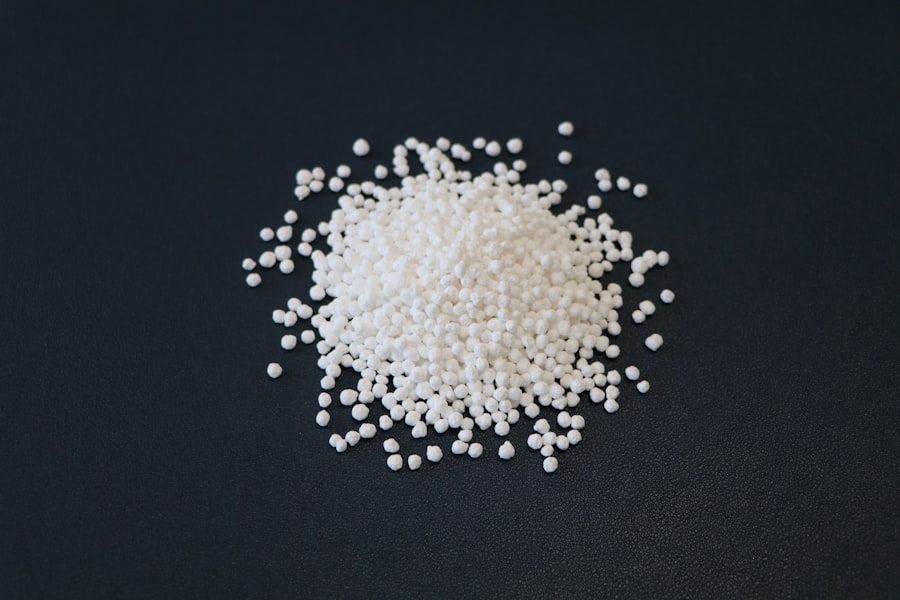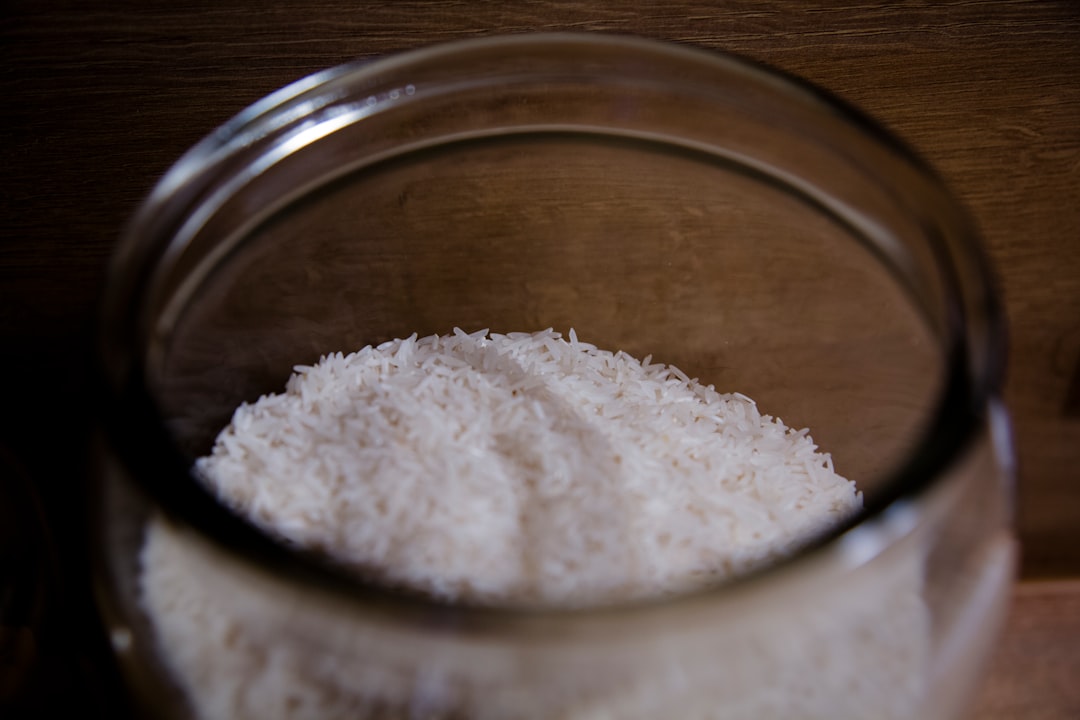Phosphates are inorganic compounds that play a crucial role in various biological processes, including energy transfer and bone health. In the food industry, particularly in processed meats, phosphates are commonly used as additives to enhance flavor, improve texture, and extend shelf life. These compounds can be found in various forms, such as sodium phosphate, potassium phosphate, and calcium phosphate.
Their ability to retain moisture and bind proteins makes them particularly valuable in the production of sausages, deli meats, and other processed products. The use of phosphates in processed meats has become increasingly prevalent over the years. Manufacturers often rely on these additives to achieve a desirable product consistency and to prevent spoilage.
However, the widespread incorporation of phosphates into the diet raises questions about their long-term effects on health. As consumers become more health-conscious, understanding the role of phosphates in processed meats is essential for making informed dietary choices.
Key Takeaways
- Phosphates are commonly used in processed meats as preservatives and to improve texture and flavor.
- High intake of phosphates from processed meats has been linked to health risks such as cardiovascular disease and kidney damage.
- Excessive consumption of phosphates can contribute to cardiovascular risks such as high blood pressure and atherosclerosis.
- Phosphates can have a negative impact on kidney health, leading to conditions such as kidney stones and chronic kidney disease.
- There is a potential link between phosphate consumption and an increased risk of certain types of cancer.
The Link Between Phosphates and Health Risks
While phosphates serve functional purposes in food production, their consumption has been linked to various health risks. Research indicates that excessive intake of phosphates can lead to an imbalance in the body’s calcium-phosphate ratio, which is vital for maintaining bone health and overall physiological function. This imbalance may contribute to a range of health issues, including cardiovascular diseases and kidney dysfunction.
Moreover, the body absorbs phosphates from processed foods more readily than from natural sources. This heightened absorption can lead to elevated phosphate levels in the bloodstream, which may have detrimental effects on health. As awareness of these potential risks grows, it becomes increasingly important for individuals to monitor their phosphate intake, particularly from processed meats that often contain high levels of these additives.
Cardiovascular Risks Associated with Phosphates

The relationship between phosphate consumption and cardiovascular health has garnered significant attention in recent years. Studies suggest that high phosphate levels can lead to vascular calcification, a condition where calcium deposits form in blood vessels, potentially resulting in reduced blood flow and increased risk of heart disease. This process is particularly concerning for individuals with pre-existing conditions such as diabetes or hypertension.
Furthermore, elevated phosphate levels have been associated with increased levels of parathyroid hormone (PTH), which can further exacerbate cardiovascular issues.
This hormonal imbalance may contribute to the development of atherosclerosis and other cardiovascular complications, highlighting the need for careful monitoring of phosphate intake from processed meats.
Impact of Phosphates on Kidney Health
| Phosphate Level | Kidney Health Impact |
|---|---|
| Normal | No adverse impact on kidney health |
| Elevated | May contribute to kidney damage and disease progression |
| Excessive | Linked to increased risk of kidney stones and cardiovascular complications |
The kidneys play a vital role in regulating phosphate levels in the body. When individuals consume excessive amounts of phosphates, particularly from processed foods, it can place significant strain on these organs. For those with pre-existing kidney conditions, such as chronic kidney disease (CKD), managing phosphate intake becomes even more critical.
The kidneys may struggle to excrete excess phosphates, leading to hyperphosphatemia—a condition characterized by elevated phosphate levels in the blood.
It can lead to bone disease and cardiovascular complications, as previously mentioned.
Additionally, high phosphate levels can contribute to the progression of kidney disease itself, creating a vicious cycle that exacerbates health issues. Therefore, individuals with compromised kidney function should be particularly cautious about their consumption of processed meats containing phosphates.
Potential Cancer Risks from Phosphate Consumption
Emerging research has begun to explore the potential link between phosphate consumption and cancer risk. Some studies suggest that high phosphate levels may promote tumor growth and metastasis by influencing cellular signaling pathways involved in cell proliferation and survival. While the exact mechanisms remain under investigation, there is growing concern that excessive phosphate intake from processed meats could contribute to an increased risk of certain cancers.
Moreover, the presence of other additives and preservatives commonly found in processed meats may compound these risks. For instance, nitrates and nitrites used in meat processing have been linked to an elevated risk of colorectal cancer. When combined with high phosphate levels, the potential for adverse health effects may be further amplified.
As research continues to evolve, it is essential for consumers to remain vigilant about their dietary choices and consider the cumulative impact of various food additives.
Phosphates and Bone Health

Phosphates are often touted for their role in bone health due to their involvement in bone mineralization alongside calcium. However, the relationship between dietary phosphates and bone health is complex. While adequate phosphate intake is necessary for maintaining strong bones, excessive consumption—particularly from processed meats—can lead to an imbalance that negatively affects bone density.
High phosphate levels can stimulate the release of parathyroid hormone (PTH), which may result in increased bone resorption—the process by which bone tissue is broken down to release minerals into the bloodstream. Over time, this can lead to weakened bones and an increased risk of fractures. Therefore, while phosphates are essential for bone health in moderation, excessive intake from processed sources may have the opposite effect.
The Role of Phosphates in Digestive Health
Phosphates also play a role in digestive health, primarily through their impact on gut microbiota and nutrient absorption. Some studies suggest that phosphates can influence the composition of gut bacteria, which is crucial for maintaining a healthy digestive system. A balanced gut microbiome is associated with improved digestion, enhanced immune function, and reduced inflammation.
However, excessive phosphate consumption from processed meats may disrupt this balance. High levels of phosphates can lead to changes in gut permeability and inflammation, potentially contributing to digestive disorders such as irritable bowel syndrome (IBS) or inflammatory bowel disease (IBD). As individuals become more aware of the importance of gut health, understanding the role of dietary phosphates becomes increasingly relevant.
Phosphates and Blood Pressure
The impact of phosphates on blood pressure regulation is another area of concern. Research indicates that high phosphate intake may be associated with elevated blood pressure levels, particularly among individuals with existing hypertension or cardiovascular conditions. The mechanisms behind this relationship are not yet fully understood but may involve vascular calcification and hormonal imbalances related to phosphate metabolism.
For individuals already at risk for hypertension or cardiovascular diseases, monitoring phosphate intake becomes crucial. Processed meats are often high in sodium as well as phosphates, compounding the potential risks associated with these dietary components. As such, individuals seeking to manage their blood pressure should consider reducing their consumption of processed meats rich in phosphates.
Recommended Daily Intake of Phosphates
Determining an appropriate daily intake of phosphates can be challenging due to varying dietary guidelines and individual health needs. The recommended dietary allowance (RDA) for phosphorus—of which phosphates are a primary source—varies by age and sex but generally falls between 700 mg per day for adults. However, it is essential to note that this recommendation encompasses all sources of phosphorus, including both natural foods and additives.
For most individuals consuming a balanced diet rich in whole foods such as dairy products, nuts, seeds, and legumes, meeting phosphorus needs through natural sources is achievable without excessive reliance on processed meats containing added phosphates. As awareness grows regarding the potential health risks associated with high phosphate intake from processed foods, individuals are encouraged to prioritize whole food sources over heavily processed options.
How to Identify Phosphates in Processed Meats
Identifying phosphates in processed meats requires careful examination of ingredient labels. Food manufacturers are required to list all ingredients used in their products; thus, consumers can look for terms such as “sodium phosphate,” “potassium phosphate,” or “calcium phosphate.” These additives may appear under various names depending on their specific formulation or purpose within the product. In addition to ingredient lists, consumers should also be aware of nutritional information panels that indicate sodium content—often correlated with phosphate levels in processed meats.
High sodium content may suggest the presence of phosphates as well since they are frequently used together as preservatives and flavor enhancers. By becoming familiar with these labeling practices, consumers can make more informed choices regarding their dietary intake of phosphates.
Alternatives to Processed Meats with Phosphates
For those concerned about the potential health risks associated with phosphates in processed meats, there are numerous alternatives available that prioritize whole food ingredients without added phosphates. Fresh cuts of meat—such as chicken breast, beef steak, or pork loin—are excellent options that provide essential nutrients without the additives commonly found in processed products. Additionally, plant-based protein sources such as legumes, tofu, tempeh, and seitan offer nutritious alternatives that are typically free from added phosphates.
These options not only support a balanced diet but also contribute positively to overall health by reducing reliance on processed foods laden with additives. By exploring these alternatives and incorporating more whole foods into their diets, individuals can mitigate potential health risks associated with excessive phosphate consumption while enjoying a diverse range of flavors and nutrients.
Phosphates are commonly used in processed meats to enhance flavor and extend shelf life, but recent studies have raised concerns about their potential health risks. Excessive consumption of phosphates has been linked to cardiovascular issues and kidney damage. For more detailed insights into the health implications of phosphates in processed foods, you can read a related article on this topic by visiting Hey Did You Know This. This article delves into the scientific findings and offers guidance on how to manage phosphate intake for better health.
WATCH THIS! 👀Why These 30 American Products Are Immediately Illegal In Europe
FAQs
What are phosphates in processed meats?
Phosphates are additives commonly used in processed meats to improve texture, flavor, and moisture retention. They are also used to extend the shelf life of these products.
What are the health risks associated with phosphates in processed meats?
Consuming high levels of phosphates, particularly in processed meats, has been linked to an increased risk of various health issues, including cardiovascular disease, kidney disease, and osteoporosis.
How do phosphates in processed meats affect cardiovascular health?
Excessive consumption of phosphates in processed meats has been associated with an increased risk of cardiovascular disease, including high blood pressure and atherosclerosis. This is due to the potential for phosphates to contribute to the hardening and narrowing of arteries.
How do phosphates in processed meats affect kidney health?
High levels of phosphates in processed meats can put strain on the kidneys, potentially leading to kidney damage and an increased risk of kidney disease. This is particularly concerning for individuals with pre-existing kidney conditions.
How do phosphates in processed meats affect bone health?
Consuming excessive phosphates, especially from processed meats, can disrupt the balance of minerals in the body, potentially leading to weakened bones and an increased risk of osteoporosis.
Are there regulations on the use of phosphates in processed meats?
In many countries, including the United States and the European Union, there are regulations on the use of phosphates in processed meats. These regulations typically include maximum allowable levels of phosphates and requirements for labeling.
